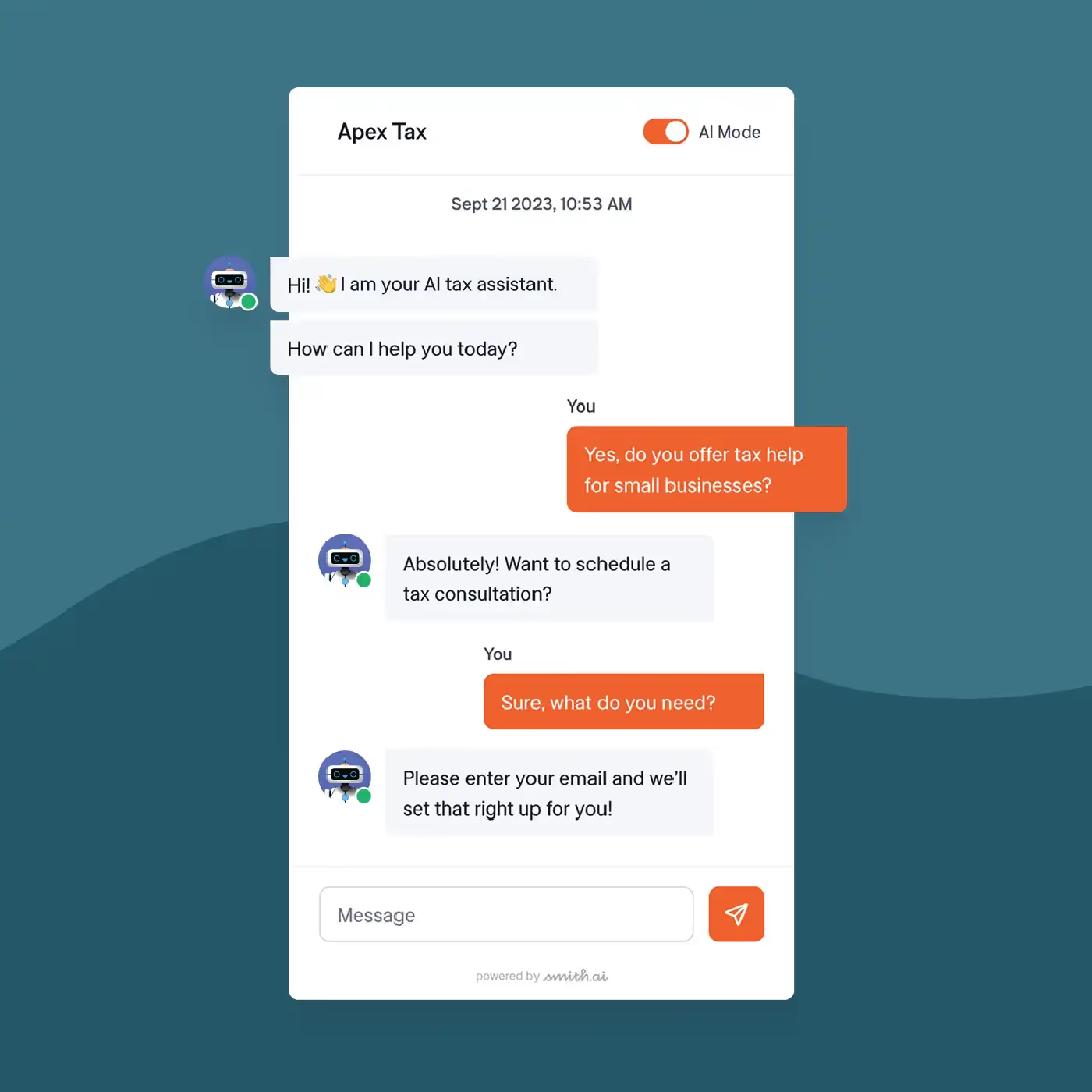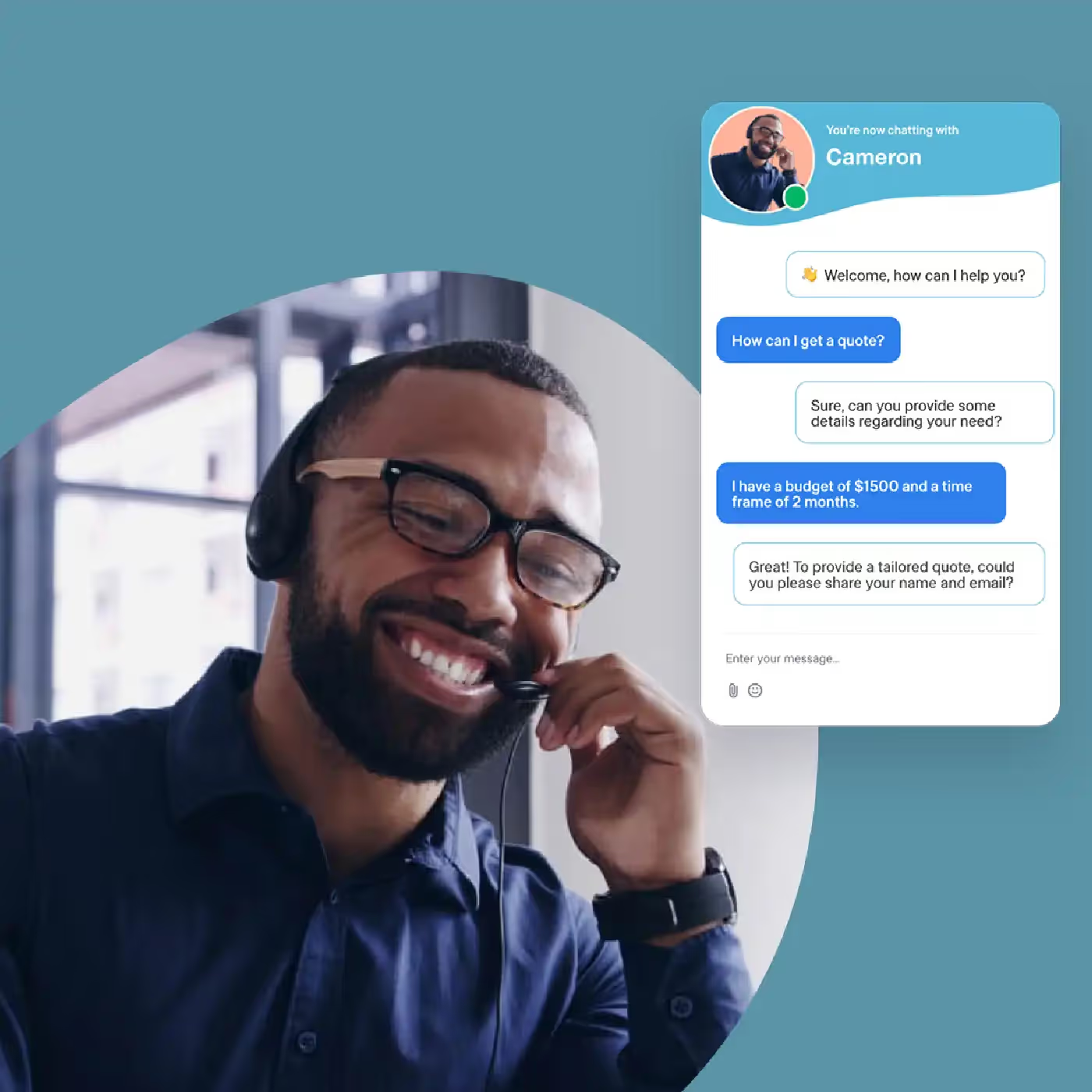AI Roadmap: How to Use AI in Business Today
AI Roadmap: How to Use AI in Business Today

Everyone’s talking about AI and all the ways it can help businesses improve efficiency and streamline processes in ways like never before. However, the clarity of exactly how AI fits into an organization is often lacking, which has led to slow adoption for the most part.
Then, there’s the fact that “AI” is a broad-reaching term. That often leaves companies trying to figure out where to start and what specific types of AI they need to put to use. Until that’s resolved, the potential of this technology is being squandered by many.
If you’re among those feeling like you’re missing out, you’re in the right place. In this guide, we’ll take a look at AI and what aspects of it you should know about. We’ll also help you map out how to put artificial intelligence to work and which areas of your business may benefit from the change.
Before we get to that, here’s a quick refresher on what we’re talking about when we refer to AI for business.
AI 101: The basics
Artificial intelligence utilizes machine learning (ML) to intake data and deliver a response or output that is relevant to the data consumed. Simply put, you can give an AI tool information and ask it to do many different things with that data. Most commonly, businesses use this technology to automate routine work and increase efficiency.
AI is not replacing humans, or at least not anytime soon. It also can’t mimic human reasoning and instinct in a way that is “dangerous,” so many of the fears of those who are uncertain about this technology are unfounded. What AI is doing, is delivering an enhanced, augmented experience. This results in benefits for both businesses and their customers.
Your AI roadmap: Where to focus your efforts
Although every business is different, there are some common areas where AI can have more use than others. For example, many companies choose to start with customer service or their contact center—this kind of AI is more refined since it’s been around a little longer, and it’s a definite win to provide better service for customers.
That’s just one of the places that you can put this technology to work, though. Here’s what you need to know.
Customer service
AI has a lot of potential applications in the customer service realm. Most notably, it’s being used to help companies launch robust AI chatbots that can deliver a more personalized experience than static, pre-programmed bots of years past. Companies are also using artificial intelligence bots on the agent end, allowing them to use this technology to help customers find solutions.
You could use AI to provide more personalized customer service interactions, too, because the technology can farm volumes of data from your CRM, including purchase history, intent, and other criteria that help define customers. This can enhance your reputation and help you create lifetime loyalty because you’re giving people the personal connection they demand.
Routine tasks
Several AI tools can help you automate routine tasks and repetitive work. Think, for example, of dynamic reporting platforms like Google Analytics, which do tons of customized reporting and analytics based on criteria that businesses set in place. You can also use AI to help with scheduling, automated customer service requests, updating calendars, and so forth.
The best way to figure out how to use it most effectively is to do some experimenting. See what tasks you have that are routine or repetitive and what kind of AI tools are out there to help you streamline them. You might also want to consider what you should rely on technology for and which services you may want to outsource to real agents.
It’s the balance of AI and human interaction that is setting companies up for future success, not the replacement of human effort by technology.
Marketing and outreach
AI has been making waves in the marketing realm, thanks to ChatGPT and its growing popularity. This kind of AI uses machine learning to train itself on how to respond to inquiries, deliver better responses, and provide useful output. You can use them to create all kinds of content, including ideas and concepts for marketing.
Prompt AI to give you topic ideas for blog posts that your audience will appreciate. Use AI tools to refine your existing marketing pitches and make sure that your content hits the mark (we’re looking at you, Grammarly). You can even use AI to collect droves of data about potential leads and audiences and then take the information from the reports to help you refine and further your marketing efforts.
Prioritize smart decisions and secure AI solutions
No matter how you incorporate AI into your business, you need to do it with an ethical, professional approach. Prioritizing security and responsible use will guarantee that you don’t overstep or potentially put your reputation at risk. It will also ensure that you’re not putting valuable customer information at risk of being hacked or compromised.
When you are looking to implement AI, you’ll want to be mindful of the tools that you choose to help you. Look for reputable solutions that also prioritize security and responsible technology use so that you can have confidence in your investment.
In no time, you’ll start to see more ways you can incorporate AI into your organization and still deliver the secure, trusted solutions that your customers demand.
Partner with Smith.ai to provide the AI & human balance
While your AI is doing its job, you’ll need to make sure the rest is handled, too. Partner with the virtual receptionists at Smith.ai and you’ll get a team of agents to assist with everything, starting with a 24/7 answering service so you never miss an opportunity. We can also handle things like lead intake and appointment scheduling, and provide live chat support to go with that chatbot.
Ask about our new AI Receptionist when you schedule your consultation, or reach out to hello@smith.ai.
Take the faster path to growth. Get Smith.ai today.
Key Areas to Explore

Your submission has been received!








.svg)



